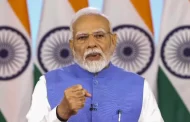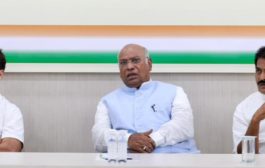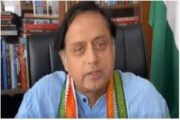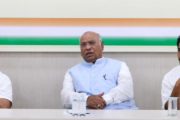On Tuesday evening, hours after the results to the Karnataka assembly were announced, and two days before the swearing in of BS Yeddyurappa as the chief minister of Karnataka, a Bharatiya Janata Party (BJP) functionary was dismissive of the chances of the post-poll Congress-Janata Dal (Secular) alliance and said: “The Karnataka chapter is over. We make a government with two MLAs; you think we won’t be able to make it with 104 MLAs. It is time to focus on the next election.”
On Saturday evening, a few hours after Yeddyurappa’s resignation on the floor of the house, another BJP leader closely involved with the party’s Karnataka affairs, said, “Things did not work out. We tried but failed in getting the numbers.”
In that journey from Tuesday to Saturday lies the BJP’s political failure in Karnataka, despite achieving relative electoral success. Conversations with a set of BJP functionaries and associates, all of whom wished to remain anonymous, reveal multiple layers of miscalculations.
For one, the BJP never thought that the Congress and the JD(S) would come together so quickly. “We had begun celebrating. The mandate was clearly against the Congress. In fact, we were cheering when the JD(S) was doing well in the Vokkaliga belt, because it meant a dip in Congress seats. We hadn’t thought that the Congress would so quickly offer chief ministership to HD Kumaraswamy,” said the first BJP leader.
But despite the alliance, the BJP felt that it had a natural claim to power. Two views are visible in the party on this issue in retrospect. The leader quoted above said with 104 seats, it was the BJP’s responsibility to demand that popular mandate be respected, and this was a party which did not cede power. “We felt we would easily get the numbers. How could we not stake claim?” But a second functionary said, “Maybe we should have let Congress and JD S) form the government and told people from day one that we had been cheated.” That was the second mistake.
The third setback for the BJP was the Congress’s decision to legally challenge governor Vajubhai Vala’s invitation to Yeddyuruppa and Chief Justice of India Dipak Mishra’s decision to constitute a bench for an urgent hearing. “We were happy that the swearing-in was not held back. But the legal challenge was the turning point because eventually the SC gave us only a day (to prove our majority). One day was just not enough to win over enough MLAs from the other side, especially when they were inaccessible,” said a second BJP leader.
The BJP also hoped that once Yeddyurappa had been sworn in as chief minister he could, with the help of the Lingayat mutt leaders in the state, be able to convince Lingayat members of the Congress to switch. That never happened. Meanwhile, it seemed as if everyone in the BJP who had a connection to someone in the Congress was reaching out; the Congress released a rash of audio recordings, purportedly of these discussions in progress, although the authenticity of these needs to be established.
It was this mix of factors — the failure to anticipate and prevent a Congress-JD(S) alliance; the decision to stake claim despite not having the majority; the challenge of preserving their own set of MLAs while winning over opposition MLAs within 48 hours; and the inability to do so despite incentives — that finally convinced the party leadership that the battle was lost.
But the BJP believes that despite losing the battle, it may still win the 2019 war in the state. “The message is straightforward. We have been cheated. People’s wishes have been subverted. This is a fragile government. We will be a very strong opposition. The aim is a sweep in the Lok Sabha now,” said the second functionary. The setback for now however is real. Does it mark the end of the perception of its invincibility?
Sanjay Kumar of the Centre for Study of Developing Societies said, “Karnataka does not mark the end of the notion that BJP is electorally invincible but it marks the end of the notion that irrespective of whether they win or lose, they will form the government.” The whole idea, Kumar argued, that by using money and power, you could win MLAs has received a jolt. “They couldn’t correctly assess the mood of the electorate, which may not question the credibility of the PM or the functioning of the government but does not like the high-handedness and these tactical short cuts that the party adopts to win power at all costs. This was their miscalculation.”
Milan Vaishnav, political scientist at the Carnegie Endowment for International?Peace, said, “Anytime you fail to form the government, it is a setback. The BJP has reason to be pleased with its performance: it significantly improved on its 2013 showing. However, despite calling on myriad levers of power, it could not win the necessary numbers. In its quest for power, it also compromised its integrity. Is the party “with a difference” just a different party?” He added the invincibility of the BJP has been punctured before, in Delhi, Bihar, and the UP bypolls. “But the timing of this setback could not be worse as the pivot to the general election has begun.”
Source: HT










































